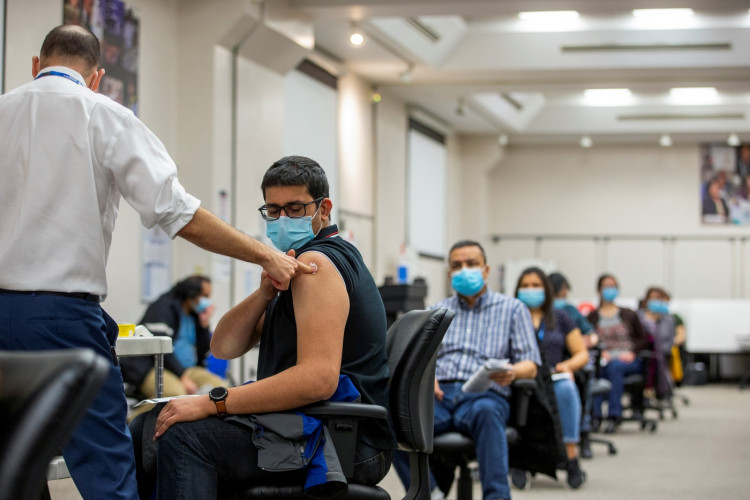A new study has suggested that the time of day a person gets their COVID-19 vaccine may have an impact on the body's immune response.
The findings were published in the Journal of Biological Rhythms by researchers from Harvard University and the University of Oxford. They examined the antibody levels in blood samples from 2,190 healthcare workers in the U.K. between December 2020 and February 2021, after getting their first doses of either a Pfizer or an AstraZeneca COVID-19 vaccine.
The researchers discovered that patients who were vaccinated between 3 p.m. and 9 p.m. had the highest antibody responses when compared to those who had been vaccinated earlier in the day.
"Our observational study provides proof of concept that time of day affects immune response to SARS-CoV-2 vaccination, findings that may be relevant for optimizing the vaccine's efficacy," co-senior author Elizabeth Klerman said in a news release.
Previous research into different diseases and medications has found evidence that the body's circadian rhythm, or biological clock, affects the severity of symptoms.
For example, Klerman cites studies that suggest that if chemotherapy medications are given at a precise time of day, they can efficiently target cancer cells while limiting harm to other cells. According to a 2008 study on the influenza vaccine, elderly men who were inoculated in the morning had higher antibody levels than those who were vaccinated in the afternoon.
The findings of the 2008 flu vaccination study, on the other hand, appear to contradict Klerman's findings, which revealed that vaccinating in the afternoon resulted in higher antibody levels rather than the other way around.
According to Klerman, the SARS-CoV-2 vaccine and the influenza vaccine have different methods of action, and antibody response might vary substantially depending on whether the immune system identifies the pathogen from previous infections, such as influenza, or whether it is presented with a novel virus.
The study does have certain drawbacks. The authors acknowledged a shortage of information on the individuals' medical and medication histories. Furthermore, the health-care employees' sleep and shift-work routines were not taken into account.
Klerman describes her study as a "first step" in proving the impact of time-of-day reactions to the COVID-19 vaccines, but she believes additional research is needed before she can propose that patients schedule their vaccine for the afternoon to get an extra boost.
Klerman and her colleagues are also exploring how the time of day may alter the vaccine's side effects.
"If antibody levels are higher when people receive the vaccine in the afternoon, we may see that side-effects are also greater," she said.






